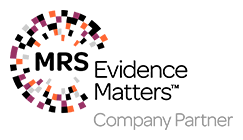
Commentators are already getting into arguments about a perceived shift in ballast from one side of the boat – ‘gold plated services’ championed by two decades of consumerism and tenant empowerment to the other side of the boat – the cheap and nasty side where the ship’s company has turned its back on the social housing product and sold their souls to a new ideology that is seemingly at odds with the ethos of the sector. Binary perspectives make for great copy.
The social housing sector is adjusting to a new and far more challenging operating environment, necessitating fundamental decisions about what we do and don’t do in the interests of efficiency, ambition and maximising value. It is forcing a rethink of what housing services should look like – a balancing act of containing costs, service quality and unintentionally contributing to a dependency culture. Underpinning the rethink is the interplay between understanding the needs of a diverse customer base to better target resources (eg based on profiling and satisfaction data), service review and appreciating the potential for automating processes and digital service provision. But it doesn’t stop there, sociological and behavioural economics concepts are increasingly playing a part: what is the right balance between rights and responsibilities, how do we nudge the desired behaviour and how can we contribute to independence, and dare I say it, aspiration?
All of this needs to take place in the context of the organisation’s social mission which should serve as an ethical compass and keep everybody in the middle of the boat.
So how has this played out at one of Acuity’s customers and how did we help?

Where they were
Like many landlords, SVHS undertook a range of customer satisfaction surveys across many areas of its business, but felt:
- Although a lot of data was collected, it wasn’t necessarily used
- Some satisfaction surveys were too long
- Managers did not ‘own’ their survey or data
- The function had not been reviewed for many years
- Managers had not been given the training on how to use satisfaction data to improve services
What we did
Acuity interviewed every manager and director about customer satisfaction and the use of data, reviewed the existing approach and recommended ways to make better use of their resources.
We then worked with the Customer Service Team to implement a change management plan to get buy-in from across the organisation:
- An executive team workshop focussed on the strategic use of customer satisfaction data
- An interactive workshop for managers (including Finance, HR & IT), which covered the importance of customer satisfaction data, how data can improve service delivery and myth busting
- Managers reviewed their satisfaction surveys and used their new knowledge to identify what data they need to improve and monitor services
- A second workshop focussed on critiquing each other’s work
- The Customer Service Team brought it all together in new co-ordinated approach, which was fully costed
The difference it made…
- The number of satisfaction surveys was reduced
- The number of questions in the remaining surveys was reduced to four, which included one service specific satisfaction question, how services could be improved and a continuity question
- The revised cost of the customer satisfaction survey was then calculated and savings identified
- The value and importance of customer satisfaction information and the use of data is understood across the company
- Ownership of the data and surveys is with the service managers
“Acuity Research acted as the critical friend and the catalyst that helped inspire the changes we needed to make” Darren Knight, Customer Service Manager






Comments are closed.